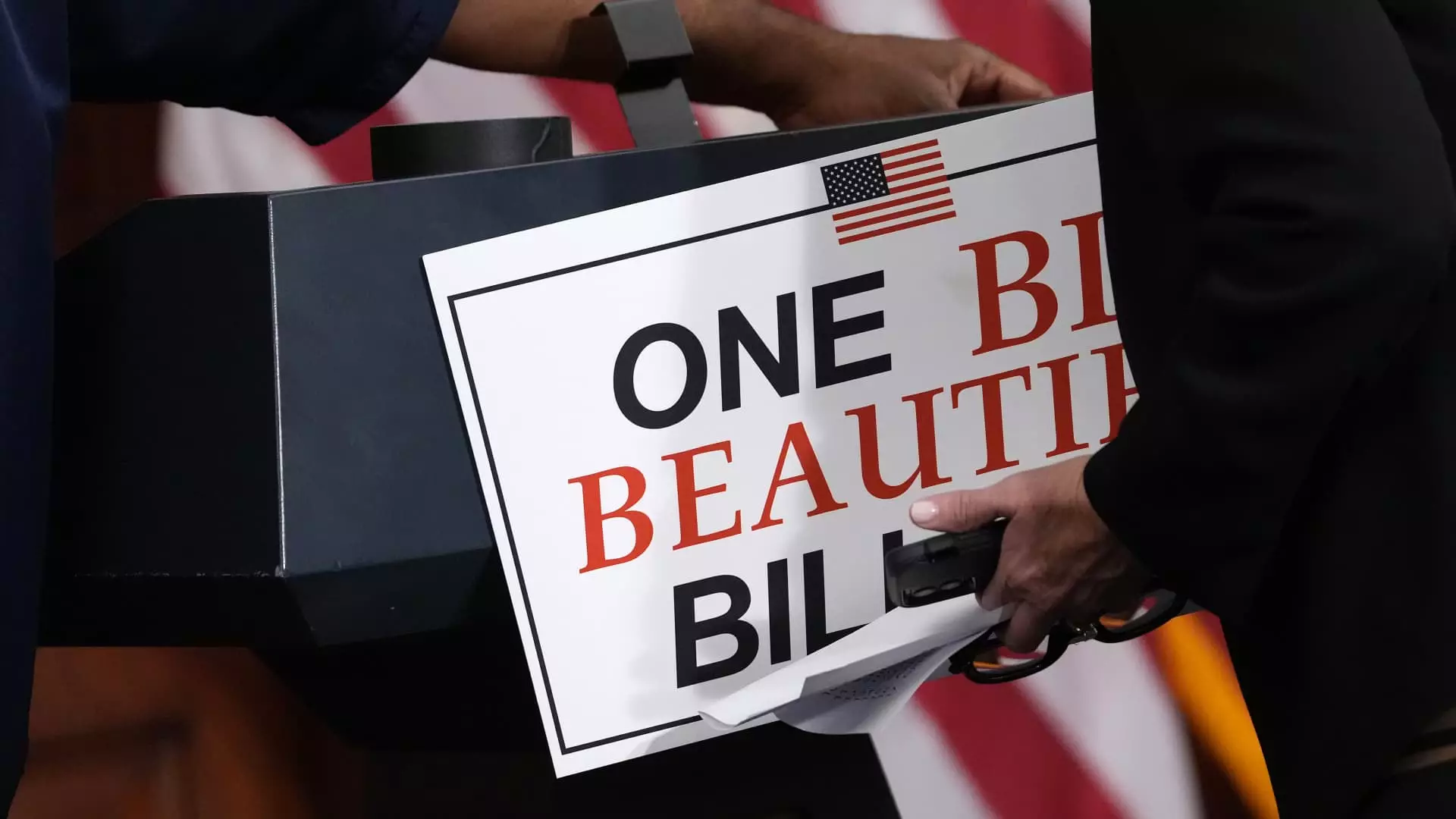In a political circus driven by the GOP’s agenda, the passage of the multi-trillion-dollar tax and spending package dubbed the “One Big Beautiful Bill Act” is raising alarm bells among progressive thinkers and economic analysts alike. While celebrated by some as a triumph of conservative fiscal policy, in reality, it exposes a profound inconsistency in Republican priorities— a glaring inconsistency that benefits the wealthiest citizens at the expense of the most vulnerable.
Amid the excited fanfare surrounding this ambitious economic package, policy experts predict significant alterations as the proposal makes its way through the Senate. While Republicans insist they are addressing financial concerns, the glaring truth is that this bill primarily upholds and even expands the tax cuts established by former President Trump, all while slashing vital social programs for low-income families, including Medicaid and food assistance programs. This isn’t about fiscal responsibility; it’s about perpetuating economic inequalities under the guise of financial reform.
The Fallacy of Tax Cuts for All
At first glance, the bill’s intentions might seem noble. The proposal aims to make permanent the tax cuts from Trump’s 2017 Tax Cuts and Jobs Act and to introduce additional breaks for tip income, overtime pay, and older Americans. However, upon closer inspection, it becomes clear that most of these benefits are skewed towards high-income earners. A hallmark of sound economic policy should include equitable tax relief that uplifts the entire socio-economic spectrum, rather than reinforcing the financial privileges of the affluent.
An alarming statistic released by the Congressional Budget Office suggests that the bill could escalate the deficit by approximately $3.8 trillion over the next decade. Such blatant fiscal irresponsibility isn’t just imprudent; it risks leading the nation down a perilous path, especially for those who already struggle to make ends meet. The party that professes to uphold family values and fiscal conservatism appears to prioritize the preservation of wealth for its most affluent constituents, essentially disregarding the economic plight of millions.
The Disastrous Medicaid Cuts
As the GOP celebrates the House’s passage of their tax package, it tragically comes at a steep price for society’s most vulnerable populations. The proposed cuts to Medicaid, a lifeline for lower-income families, expose the party’s disinterest in addressing the health care needs of citizens who fall below the poverty line. This is not merely a number on paper; these cuts translate into real lives affected, as countless families grapple with the dire consequences of losing essential health coverage.
Howard Gleckman, a senior fellow at the Urban-Brookings Tax Policy Center, bluntly acknowledges that Senate negotiations will be rife with disagreements, particularly surrounding Medicaid provisions. If there is indeed a larger debate brewing, then it should compel us to question whose voices are truly being heard in this legislative process. The societal cost of deliberations on vital lifelines should not just come down to party lines; it must reflect a compassionate concern for those facing economic hardships.
Sticking Points and SALT Deductions
The controversy surrounding the state and local tax (SALT) deductions emerges as another avenue of contention within the bill. The proposal to raise the cap on SALT deductions to $40,000, while allowing such tax breaks to phase out for individuals earning over $500,000, exemplifies the GOP’s persistent prioritization of wealth accumulation. High-tax states like New York and California could benefit from this cap increase, yet it raises uncomfortable questions about fairness and equity.
By extending SALT deductions to wealthier households, the proposed bill exacerbates the tax burden on middle and lower-income Americans who may scarcely see any benefit at all from the proposed changes. Instead of addressing the systemic flaws within the tax code, this initiative risks entrenching an antiquated belief that the rich should be favored while the poor bear the brunt of fiscal austerity.
The Hypocrisy of Conservative Family Values
The unfortunate irony of the GOP’s recent legislative actions is the avowed commitment to “family values” while ultimately undermining the financial stability of countless American households. In their momentous efforts to solidify the child tax credit, which many rightfully argue should be expanded, they appear to be grappling with a moral dyslexia that prioritizes partisan gains over the wellbeing of families struggling in this precarious economy.
Furthermore, the decision to only offer temporary enhancements to families through a limited child tax credit seems disingenuous. It questions the sincerity of their commitment to lifting families out of poverty. Real change requires a fundamental rethinking of how tax policies can feasibly support working-class Americans instead of continuously favoring the wealthiest.
Ultimately, as Congress debates this sweeping legislation, one must wonder if the intentions truly align with the needs of the American populace, especially those they claim to represent. The GOP seems effectively poised to prioritize tax benefits for the elite, all while masquerading as champions of economic rejuvenation for all. It’s a betrayal of the very principles they profess to uphold, and it’s time we collectively recognize that the scale of economic injustice is a battle we cannot afford to lose.

